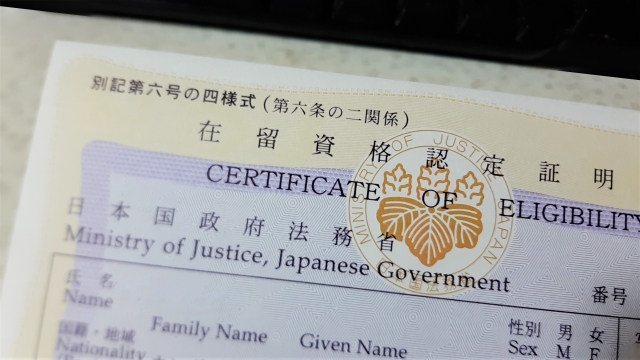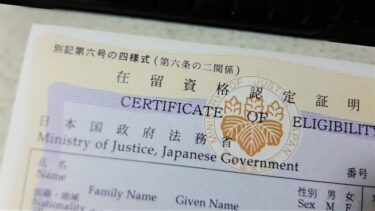Working in Japan requires obtaining the correct work visa, which depends on your job type, qualifications, and duration of stay. Below is a comprehensive guide to help you understand the various work visas, their requirements, and how to apply for them.
Visa Information for Foreign Workers in Japan
1. Types of Work Visas in Japan
Japan offers several visa categories, each designed for specific types of employment. Here are the most common work visas for foreigners:
1.1 Engineer/Specialist in Humanities/International Services Visa
This is one of the most commonly used visas by foreigners working in fields like IT, engineering, finance, marketing, and language services.
- Eligibility: Requires a university degree or 10 years of relevant work experience in the chosen field.
- Applicable Jobs: IT professionals, engineers, designers, business analysts, translators, and consultants.
- Language Requirements: Some jobs require fluency in Japanese, while others may only need English proficiency.
1.2 Skilled Labor Visa
This visa is for highly specialized jobs that require specific skills.
- Eligibility: Requires several years of experience in a particular skill or trade, such as cooking, architecture, or repair services.
- Applicable Jobs: Chefs, construction workers, artisans, and certain technical trades.
1.3 Business Manager Visa
For those starting a business or managing a company in Japan.
- Eligibility: You must have a physical office in Japan and an investment in the company.
- Applicable Jobs: Entrepreneurs, CEOs, and managers.
1.4 Highly Skilled Professional Visa
This visa is aimed at individuals with advanced skills and high qualifications.
- Eligibility: Points are awarded based on academic background, work experience, and salary, with a minimum score required to qualify.
- Applicable Jobs: Researchers, corporate executives, and specialists in science, engineering, and business.
- Benefits: Provides preferential treatment, such as a 5-year visa, faster paths to permanent residency, and the ability to bring family members.
1.5 Intra-Company Transferee Visa
For foreign employees who are transferred to Japan by their overseas company.
- Eligibility: The applicant must have worked for the overseas branch of the company for at least one year.
- Applicable Jobs: Managers and technical staff moving within a multinational company.
1.6 Working Holiday Visa
This visa is for young people (usually under 30) from countries that have a working holiday agreement with Japan. It allows them to work while traveling.
- Eligibility: Age under 30, citizen of a country with a working holiday agreement with Japan (e.g., Australia, Canada, France, Germany, UK).
- Duration: Typically one year.
- Applicable Jobs: Part-time or temporary jobs, often in service industries like hospitality.
1.7 Student Visa (with Work Permission)
Although a student visa does not automatically allow full-time work, international students can apply for permission to work part-time (up to 28 hours per week). This is often the first step for students wanting to transition to a work visa after graduation.
2. Visa Application Process
2.1 Find a Sponsor
To obtain a work visa, you need a sponsor, which is usually your employer. The company will help you submit the necessary documents to the Immigration Bureau of Japan.
2.2 Required Documents
The documents required vary by visa type but generally include the following:
- Certificate of Eligibility (COE): Issued by the Immigration Bureau, this certificate proves you meet the requirements for your visa category. Your sponsor typically applies for this on your behalf.
- Passport and Photos: Valid passport and recent passport-sized photos.
- Application Form: The visa application form, which can be downloaded from the Japanese embassy or consulate website.
- Resume and Employment Contract: These show your qualifications and the job offer.
- Educational Certificates: Copies of your degree certificates (if applicable).
- Job Description: A detailed description of the job you will be doing in Japan.
- Proof of Company Details: Your employer will need to submit documentation proving that the company is legitimate and capable of sponsoring your visa (e.g., registration documents, financial statements).
2.3 Application Timeline
- COE Application: Your sponsor (employer) applies for the COE on your behalf, which can take 1-3 months to process.
- Visa Application: After receiving your COE, you apply for the visa at a Japanese embassy or consulate in your home country, which typically takes 1-2 weeks.
3. Changing or Renewing Your Visa
3.1 Changing Your Visa Status
If you wish to change your visa (e.g., from a Student Visa to a Work Visa), you must submit an application to the Immigration Bureau. The process includes providing new documents that reflect your new employment situation.
3.2 Visa Renewal
Work visas are usually issued for 1, 3, or 5 years. If you plan to stay longer, you must apply for a renewal before your current visa expires. The renewal process requires similar documents as the original visa application and can take several weeks to process.
4. Permanent Residency and Long-Term Stay Options
Foreign workers who have lived in Japan for a significant period may be eligible for permanent residency. The requirements differ based on the visa type:
- Highly Skilled Professional Visa holders can apply for permanent residency after just 1-3 years.
- Other visa holders generally need to live in Japan for 10 years or more before becoming eligible.
Permanent residency offers greater flexibility, allowing you to stay in Japan without renewing your visa and enabling you to work in any job without restrictions.
5. Visa FAQs
Do I need Japanese language skills to get a work visa?
While language proficiency is not a formal requirement for a work visa, many employers expect candidates to have at least some Japanese language ability. This is particularly true for non-technical roles where communication with Japanese clients and colleagues is essential.
Can my family join me in Japan?
Yes, most work visa holders can bring their spouse and children to Japan under a Dependent Visa. Dependents are allowed to live in Japan but must apply for separate work permission if they wish to work.
What happens if I lose my job?
If you lose your job, you have a grace period of up to 3 months to find new employment or change your visa status. If you cannot find a new employer to sponsor your visa within that time, you will need to leave Japan.
Useful Links for Visa Information
- Immigration Services Agency of Japan: The official website for visa information and application forms.
Website: Immigration Services Agency - Visa Information by Japanese Embassies: Find specific visa application procedures based on your home country.
Website: Japanese Embassy Visa Information - Tokyo Employment Service Center for Foreigners: Provides support for visa application and job placement.
Website: Tokyo Employment Service Center - JETRO: Provides information on business visas for entrepreneurs and business managers.
Website: JETRO
If you can’t find the information you’re looking for, please send us a request through the contact form.
We will create articles based on the most frequently asked questions.
Our contact form is here.




